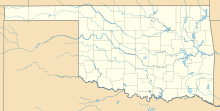![]() Generally, all single bonds are said to permit free rotation while all double bonds are said to inhibit free rotation. This can actually be explained numerically as well: the rotation around the $\ce{O-O}$ bond in $\ce{H2O2}$ has an approximate rate constant of $2.0 \times 10^{8}~\mathrm{s^{-1}}$...
Generally, all single bonds are said to permit free rotation while all double bonds are said to inhibit free rotation. This can actually be explained numerically as well: the rotation around the $\ce{O-O}$ bond in $\ce{H2O2}$ has an approximate rate constant of $2.0 \times 10^{8}~\mathrm{s^{-1}}$...
user116211
user116211
user116211
user116211
user228700
user228700
user161117
user161117
user246160
user246160
user161117
user246160
user246160
user161117
user228700
user246160
user246160
user161117
user246160
user161117
user161117
user246160
user246160
user246160
user246160
user161117
user246160
user161117
user246160
user246160
user246160
user161117
user246160
user161117
user246160
user161117
user161117
user161117
user161117
user246160
user161117
user246160
user161117
user161117
user161117
user161117
user161117
user161117
user246160
user161117
user161117
user246160
user246160
user161117
user161117
user246160
user161117
user161117
user246160
user246160
user246160
user161117
user161117
user246160
user246160
user246160
user161117
user161117
user246160
user246160
user246160
user161117
user161117
user161117
user246160
user246160
user161117
user246160
user246160
user161117
user161117
user246160
user161117
user246160
user246160
user161117
user161117
user246160
user246160
user246160
user161117
user161117
user246160
user161117
user246160
user161117
user161117
user246160
user161117
user246160
user246160
user161117
user246160
user161117
user246160
user161117
user161117
user228700
user116211














